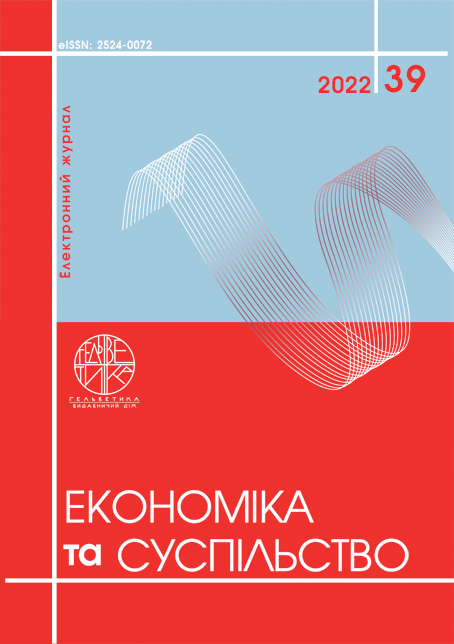ВПЛИВ ВІЙСЬКОВИХ ДІЙ НА ПІДПРИЄМНИЦЬКУ ДІЯЛЬНІСТЬ
Анотація
Доведено важливість аналізу особливостей впливу військових дій на підприємницьку діяльність. Охарактеризовано сутність впливу військових дій на підприємницьку діяльність. Визначено ключові негативні фактори впливу військових дій на підприємницьку діяльність. За результатами проведеного дослідження було сформовано модель негативного впливу військових дій на підприємницьку діяльність. За результатами проведеного дослідження нами було встановлено наскільки актуальним сьогодні є аналіз негативного впливу військових дій на підприємницьку діяльність. Дослідження має обмеження і вони пов’язані з не спроможністю практичного застосування запропонованої моделі в підприємницькій діяльності. Подальших досліджень потребує питання аналізу особливостей ведення підприємницької діяльності в умовах поствоєнного стану в період перемоги України.
Посилання
Garškaitė-Milvydienė, K. Guidelines on restructuring enterprises. Business: Theory and Practice, 2013, 14(3), 249–258. DOI: https://doi.org/10.3846/btp.2013.26
Frolova, L., Zhadko, K., Ilyash, O., Yermak, S., & Nosova, T. Model for opportunities assessment to increase the enterprise innovation activity. Business: Theory and Practice, 2021, 22(1), 1–11. DOI: https://doi.org/10.3846/btp.2021.13273
Bochkovskii, A., & Gogunskii, V. Development of the method for the optimal management of occupational risks. Eastern-European Journal of Enterprise Technologies, 2018, 3(3(93)), 6–13. DOI: https://doi.org/10.15587/1729-4061.2018.132596
Dzemyda, I. Electronic marketing for the development of international tourism. Business: Theory and Practice, 2014, 15(2), 191–197. DOI: https://doi.org/10.3846/btp.2014.19
Szymańska, E., & Panfiluk, E. Determinants of technological innovations in health tourism enterprises. Business: Theory and Practice, 2020, 21(1), 348–359. DOI: https://doi.org/10.3846/btp.2020.11104
Amodeo, J. Medical refugees and the future of health tourism. World Medical & Health Policy, 2010, 2(2), 65–81. DOI: https://doi.org/10.2202/1948-4682.1103
Szymańsk, E., Dziedzic, E., & Rutkowski, A. Organisational innovations in health resort-based tourism. Business: Theory and Practice, 2017, 18, 54–63. DOI: https://doi.org/10.3846/btp.2017.006
Garškaitė-Milvydienė, K. (2013). Guidelines on restructuring enterprises. Business: Theory and Practice, 14(3), 249–258. DOI: https://doi.org/10.3846/btp.2013.26
Frolova, L., Zhadko, K., Ilyash, O., Yermak, S., & Nosova, T. (2021). Model for opportunities assessment to increase the enterprise innovation activity. Business: Theory and Practice, 22(1), 1–11. DOI: https://doi.org/10.3846/btp.2021.13273
Bochkovskii, A., & Gogunskii, V. (2018). Development of the method for the optimal management of occupational risks. Eastern-European Journal of Enterprise Technologies, 3(3(93)), 6–13. DOI: https://doi.org/10.15587/1729-4061.2018.132596
Dzemyda, I. (2014). Electronic marketing for the development of international tourism. Business: Theory and Practice, 15(2), 191–197. DOI: https://doi.org/10.3846/btp.2014.19
Szymańska, E., & Panfiluk, E. (2020). Determinants of technological innovations in health tourism enterprises. Business: Theory and Practice, 21(1), 348–359. DOI: https://doi.org/10.3846/btp.2020.11104
Amodeo, J. (2010). Medical refugees and the future of health tourism. World Medical & Health Policy, 2(2), 65–81. DOI: https://doi.org/10.2202/1948-4682.1103
Szymańsk, E., Dziedzic, E., & Rutkowski, A. (2017). Organisational innovations in health resort-based tourism. Business: Theory and Practice, 18, 54–63. DOI: https://doi.org/10.3846/btp.2017.006


